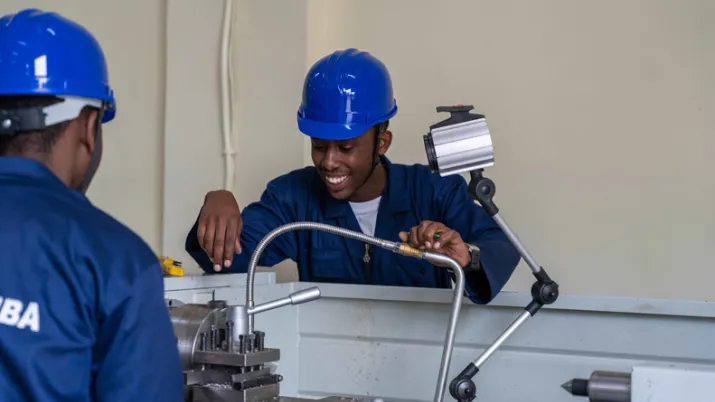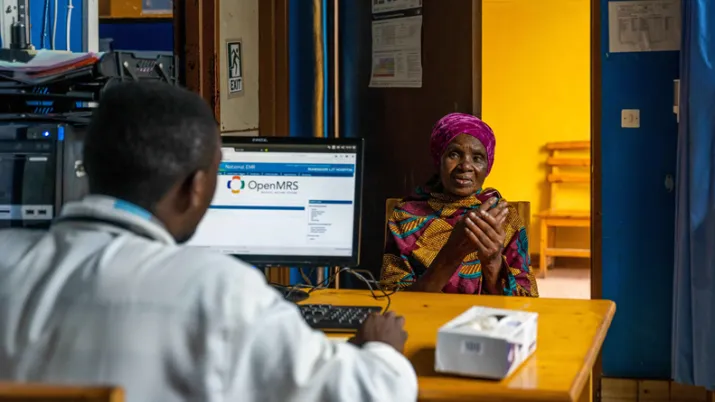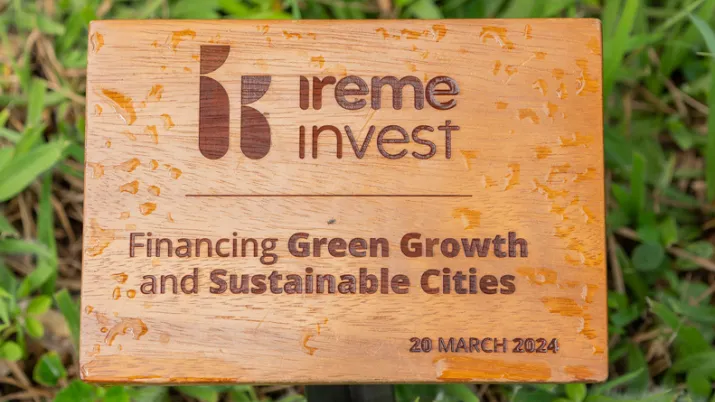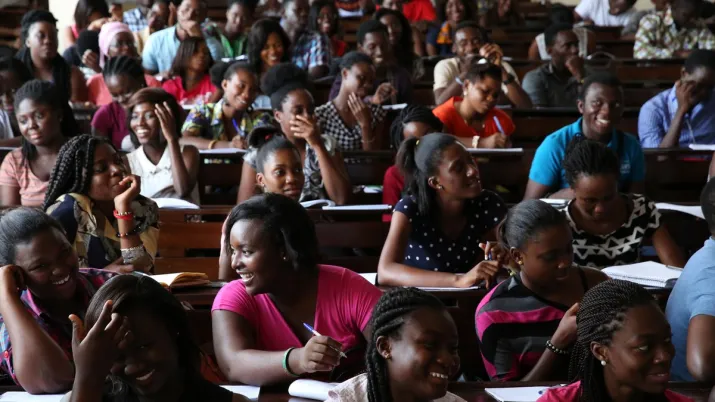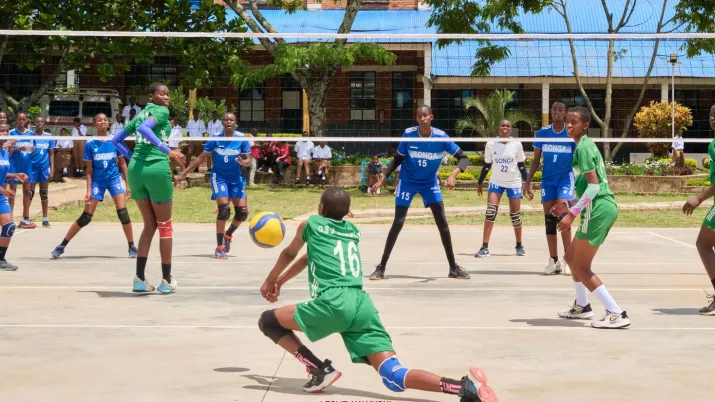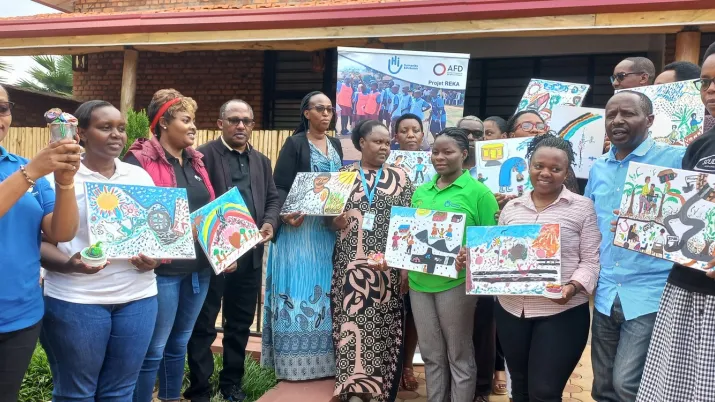Share the page
Rwanda
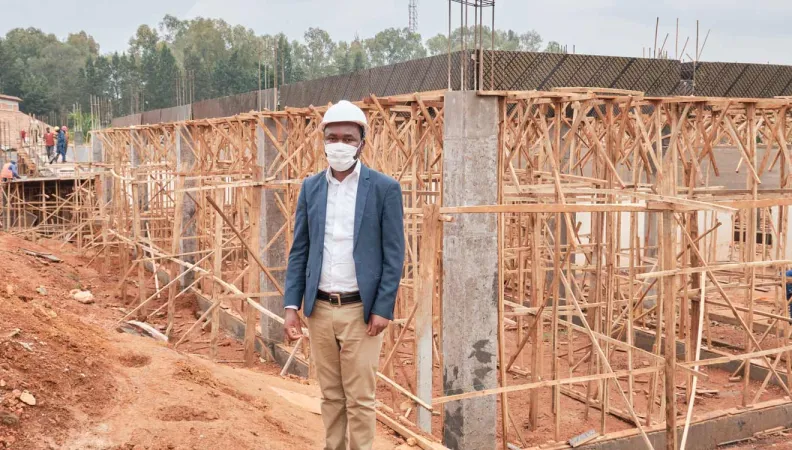
In the heart of the Great Lakes region, Rwanda has experienced more than two decades of sustained growth, which has been accompanied by a significant improvement in living conditions for its population. The normalization of diplomatic relations between France and Rwanda enabled AFD to resume operations in 2019 and reopen an office in Kigali in 2021. AFD works closely with the Rwandan government to support initiatives in health, vocational training, and climate action.
Context
A landlocked and densely populated country in the Great Lakes region, Rwanda has made significant development progress since the end of the 1994 genocide. Effective governance systems have supported sustained economic growth, with an average rate of 9.5% per year since 2000, helping the country advance toward its national development goals.
In 2023, GDP per capita reached USD 1,010, reflecting continued improvements in living standards. Substantial progress has also been made in access to health services (82% in 2022), safe drinking water (82.3% in 2022), and electricity, with coverage rising from 6% in 2009 to 75% in 2024. These gains have contributed to a sharp reduction in poverty, which fell from 95% in 2000 to 53% in 2023.
The social protection system has played a key role in expanding healthcare coverage, while the country has also advanced toward universal basic education. Rwanda’s Human Development Index (HDI) has improved significantly, with life expectancy increasing by 18 years over the past two decades.
Rwanda was also among the first countries to submit its Nationally Determined Contribution (NDC) under the Paris Agreement. To achieve the ambitions of its Vision 2050, Rwanda relies in part on financial and technical support from its development partners. At the same time, it is seeking to strengthen its autonomy, notably through the creation in 2011 of the Agaciro Development Fund, a sovereign wealth fund aimed at reducing public debt.
Looking ahead, Rwanda aims to position itself as a regional innovation hub through strategic investments in technology, biopharmaceuticals (including vaccine production for the African continent), hosting international conferences and events, high-end tourism, and the development of sports.
AFD’s office in Rwanda reports directly to the East Africa regional office in Nairobi.
Our approach
AFD and Rwanda: a strengthened partnership for inclusive and sustainable development
After contributing to the response to the Covid-19 pandemic, AFD is working to improve access to health services for the most vulnerable communities. Its flagship initiative is the rehabilitation of Ruhengeri Referral Hospital, located in Musanze, the country's second-largest city.
AFD also promotes peer-to-peer exchanges by mobilizing French medical professionals through a grant implemented with the support of Expertise France (EF). Additional funding for the health sector is provided through a Results-Based Financing (RBF) mechanism, which supports the implementation of Rwanda’s fifth National Health Strategy. This budget support will help expand access to quality care and quadruple the number of qualified health professionals through targeted training.
With nearly 60% of the population under the age of 25, youth education and training is a top priority for the government. AFD supports vocational training by financing a professional higher education institution and several TVET (Technical and Vocational Education and Training) schools in Rulindo District, thereby improving the employability of more than 4,400 students.
A second phase of the program, targeting institutions in other parts of the country, is already under way. In addition, a new TVET project, which includes the construction of student housing to make vocational pathways more attractive, was recently approved.
AFD is also helping to strengthen the teaching and learning of French, thereby enhancing the professional skills of young Rwandans. Finally, it supports the implementation of the national school sports policy through the Isonga program.
Rwanda, which is particularly vulnerable to the effects of climate change, has made ambitious commitments under the Paris Agreement. AFD’s work in the country focuses on two key areas:
- Supporting territorial resilience, with a focus on areas most exposed to climate impacts, including rural districts and informal neighborhoods in Kigali.
- Aligning public and private investment flows with the country's climate trajectory. This involves structured dialogue with the Rwandan government (on sustainable procurement and integrating climate considerations into investment decisions), with the National Bank of Rwanda (on implementing the sustainable finance roadmap), and with the Rwanda Development Bank (BRD) through a strategic partnership, notably via the Ireme Invest initiative.
In the field
Projects
News & Press Releases
Africa–France academic partnerships (PeA) program: Five new recipients
Published on December 12, 2025
Confronting Gender-based Violence in Rwanda and Reigniting hope for the Future
Published on March 8, 2024
Key figures
-
593 million euros committed between 2019 and 2025
-
4,400 students per year benefiting from enhanced Technical and Vocational Education and Training (TVET) opportunities
-
47,000 residents now live in informal settlements that are better equipped to withstand the effects of climate change

